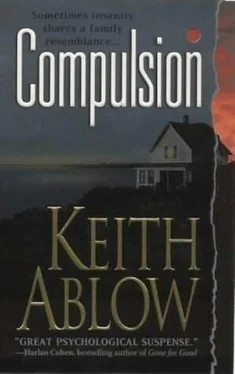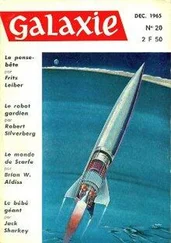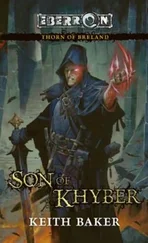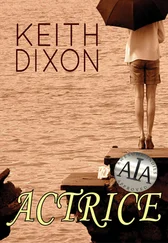"Sounds open and shut," Anderson said.
"Think what you want," O'Donnell said. "But please do what you say you will. And you said you'd clear your moves with me."
I saw Anderson 's jaw set. His breathing moved into a Zen-like study in self-control.
O'Donnell made a visible effort at relaxing himself. "This is the way it always goes, North," he said. "I know it doesn't feel good yielding your home turf to the state, but we'll be out of your hair soon enough." He paused. "We found a swatch of cloth from one of Billy's jackets about a half-mile into the Commons. So we know we're headed in the right direction. It's just a matter of time now."
Anderson nodded. "I'll talk to you later, then." He walked toward his car.
I started to follow him.
"Good meeting you, Dr. Clevenger," O'Donnell said, extending his hand just as I moved past him.
I shook it. "I'm sure we'll see each other again," I said.
I braced myself as Anderson accelerated away from the Bishop house, but my back still screamed at me to stop moving. I fished in my pocket, came up with four Motrin, and swallowed them.
"Claire must have called O'Donnell while we were talking with Garret," Anderson said. "If I wasn't sure before, I am now: He's got to be in Bishop's pocket."
"All the more reason to keep pushing," I said. "I didn't like his comment about Billy being armed."
"Neither did I."
Anderson and I seemed to be on the same page again, which felt good. "After we grab the bottle of nortriptyline, I should pay Julia another visit in Boston," I said. "I'd like to see her reaction to that letter, not just hear it."
"Agreed," he said, dialing a call on his cell phone. "See how things go today. You can take a flight late tonight or catch the first one in the morning." As we sped past the gauntlet of reporters, Anderson squinted through the windshield, listening to his phone. He clicked it off, shook his head. "Your lawyer friend is no slouch," he said.
"Rossetti? Why? What's up?" I asked.
"The detective I assigned to check out the Bishops' life insurance policies left me a message while we were at the estate."
"The twins were insured?" I said.
"Ten million apiece," he said. "A guy named Ralph Rot-man at Atlantic Benefit Group set them up with Northwestern Mutual."
"Twenty million dollars is a lot of money, even to Darwin Bishop," I said.
"Especially when your stocks are in the gutter," Anderson said.
I thought of Bishop's Gatsbyesque rise out of Brooklyn, all the distance he had put between himself and the poverty and hunger he had faced as a child. If his cash crunch made him feel he was headed back there, he might do anything to keep his inflated sense of himself alive-even kill Brooke and Tess. He might even convince himself that their lives would have been worthless with a disgraced, bankrupted father. Why not sacrifice them to the greater good, let their blood transfuse the rest of the family?
Some people do that kind of strange calculus when they feel besieged, whether the panic is rational or not. I once testified at the trial of a man who had murdered his wife because, he said, she was overly domineering toward him and the couple's two daughters. He believed they would all be better off without her, even if it meant his spending his life in prison. After pretending to leave for work one day, he circled back home and stabbed her thirty-six times. He went grocery shopping as she lay bleeding and unconscious on their bed. He filled the refrigerator and tidied up his kids' rooms. He wanted them to feel a little more organized amidst the impending chaos-his arrest, his wife's funeral, his trial. Then he put on a fresh shirt and pair of slacks, called the police, and confessed what he had done.
A nineteen-year-old man I evaluated was upset that his cousin-a South Boston gang member who disliked blacks-had been stricken with leukemia. To fuel the cousin's recovery, he approached a fourteen-year-old black boy in Roxbury and emptied four bullets into his chest. "I was sort of doing what my cousin would do, kind of like that might bring him back," the man told me.
Strange calculus, indeed. And none of it surprises me, anymore-certainly not after what 1 was to learn about the Bishops.
Anderson and I made it to the Brant Point Racket Club just after 2:00 p.m. There was enough activity in the place that we attracted little attention as we located Garret's locker.
I had a moment of trepidation after North put the key in the lock. "Hold on," I said.
Anderson stopped and looked at me. "What?"
"We're following Garret's road map without a thought. Any chance this thing could be rigged?" I said.
Anderson looked at me askance. "Like, with explosives?"
I shrugged.
"I guess there's a chance." He turned the key and pulled the door open, partway. "I think it's slim." He grinned. "You've been hanging with the paranoids too long. You need to take some time when this is over."
"No kidding," I said. But I didn't think the symptoms of my patients at MGH were rubbing off on me. More likely, the vector was my feeling deceived by Julia, my worry over what else might be hidden in her closet.
Garret's locker was a window on his soul. A single racket was angled against two walls of the lower compartment, but there were none of the accouterments favored by tennis fanatics-no lambskin glove, no athletic tape, no sweatbands, no Bolle glasses, not even a pair of sneakers. The back wall of the lower compartment was wallpapered with very competent black-and-white photographs of Nantucket. There were shots of the harbor, the Commons, dunes, beach.
"The kid can use a camera, if these are his work," Anderson said, admiring the images.
"They're beautiful," I said. I lingered on the photographs for several seconds, then my gaze moved to the locker's upper compartment and the dozen or more old books haphazardly stacked there-works by Kafka, J. D. Salinger, Steinbeck.
Anderson took out a paper bag and used it to cover his hand. A plastic bag might cling to the bottle and rub away fingerprints. He glanced at the books. "Garret loves the classics," he said.
"There are worse escapes than photography and literature," I said, thinking of my own.
He reached past the books to the back, right-hand corner of the top shelf, where Garret had said the nortriptyline bottle would be hidden in a tennis ball can.
I realized we might be on the brink of evidence that would help exonerate Billy. The excitement of that possibility dulled the pain in my back, at least for the moment. Maybe it was my own strange calculus, but I felt as if I had the chance to discharge a debt I had been carrying for years-what I owed Billy Fisk and the cosmos and, ultimately, myself for losing that decent young man to suicide. And no doubt I felt that another debt was about to be satisfied. If Win Bishop were ultimately exposed as a murderer, part of me would feel I had paid back my father what I owed him: trial, conviction, and sentencing for stealing my boyhood.
"Got it," Anderson said, bringing down the tennis ball can. He used a piece of tissue to open the lid, then dumped the nortriptyline bottle-one of those typical orange-brown plastic affairs-into his bagged hand. He turned the bag inside out, securing the bottle inside it. "If Win's fingerprints are all over this, and Billy's aren't," he said, "the old man will wonder a long time why he didn't toss this over the cliffs." He smiled. "You were heading to Boston, anyhow. Why don't we bring the bottle to the State Police crime laboratory? I could grab prints off it right at the station, but I'd rather get it done by the experts."
Anderson arranged for a chopper to fly us directly to the crime lab in Boston. I was glad to be headed in Julia's direction-and fast-not only to confront her about the letter Claire had shown us, but also to protect her from Darwin, who would have arrived in Boston hours earlier. The latter motivation was the stronger of the two. Even with her shining more brightly as a suspect, even with my new doubts about what, if anything, our "love" really meant to her, I felt moved to rescue her. She was the most powerfully seductive woman I had ever met.
Читать дальше












